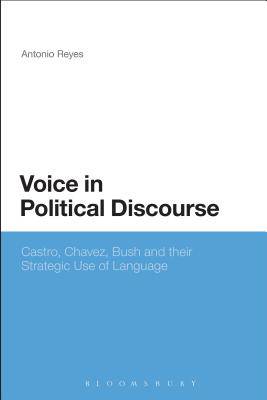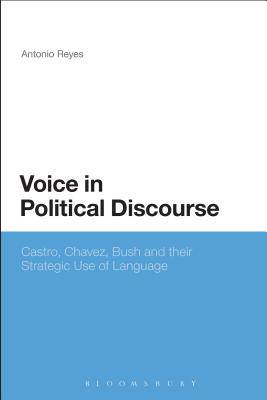
- Afhalen na 1 uur in een winkel met voorraad
- Gratis thuislevering in België vanaf € 30
- Ruim aanbod met 7 miljoen producten
- Afhalen na 1 uur in een winkel met voorraad
- Gratis thuislevering in België vanaf € 30
- Ruim aanbod met 7 miljoen producten
Zoeken
Voice in Political Discourse
Castro, Chavez, Bush and Their Strategic Use of Language
Antonio Reyes, Reyes Antonio
Paperback | Engels
€ 88,45
+ 176 punten
Uitvoering
Omschrijving
Politicians enact three main roles in political discourse - narrator, interlocutor and character - to achieve specific goals. This book explains these roles and how they constitute discursive strategies, correlating with political aims. In short: politicians evoke voices in discourse to strategically position themselves in relation to social actors and events. The book describes these strategies and analyzes the manner in which they are employed by three very different politicians - Fidel Castro, Hugo Chavez and George W. Bush. The roles are studied cross-culturally and from different ideological backgrounds.
This book explains how political ideologies are constructed, defined and redefined by linguistic means, showing specific ways in which politicians manipulate language to achieve the goals on their political agenda. It applies new methodological approaches to the analysis of political discourse and also contributes to the sparse literature on political discourse analysis of Spanish-speaking politicians.
This book explains how political ideologies are constructed, defined and redefined by linguistic means, showing specific ways in which politicians manipulate language to achieve the goals on their political agenda. It applies new methodological approaches to the analysis of political discourse and also contributes to the sparse literature on political discourse analysis of Spanish-speaking politicians.
Specificaties
Betrokkenen
- Auteur(s):
- Uitgeverij:
Inhoud
- Aantal bladzijden:
- 208
- Taal:
- Engels
Eigenschappen
- Productcode (EAN):
- 9780567003584
- Verschijningsdatum:
- 23/05/2013
- Uitvoering:
- Paperback
- Formaat:
- Trade paperback (VS)
- Afmetingen:
- 156 mm x 234 mm
- Gewicht:
- 285 g

Alleen bij Standaard Boekhandel
+ 176 punten op je klantenkaart van Standaard Boekhandel
Beoordelingen
We publiceren alleen reviews die voldoen aan de voorwaarden voor reviews. Bekijk onze voorwaarden voor reviews.








